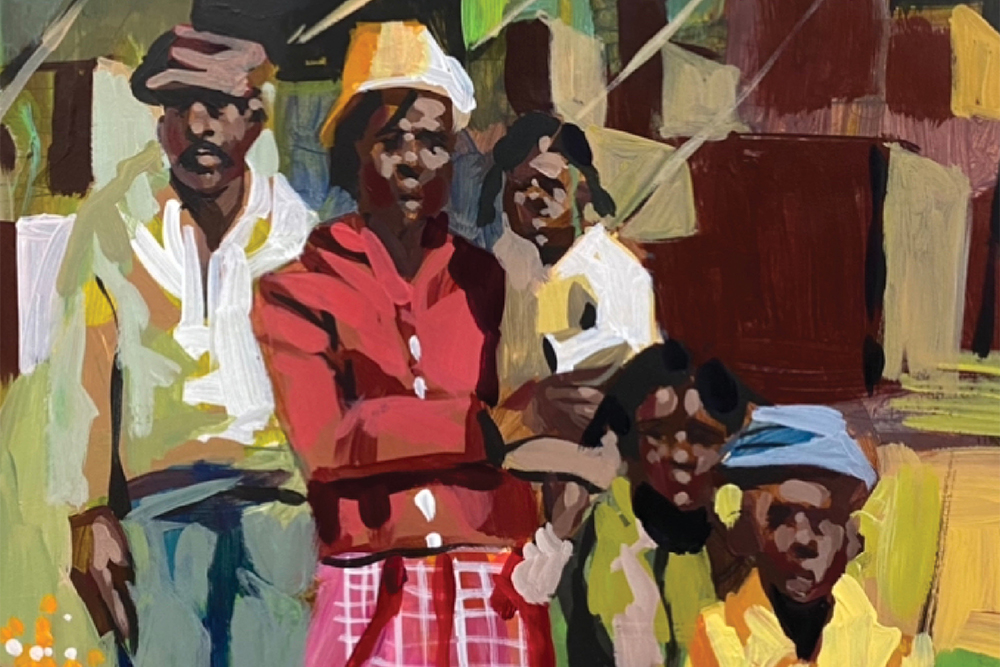Children will be what they see. So, be mindful of your daily habits because they etch memories on the soul of a child. And as children grow up, good or bad, your influence frames the template for their future.
I was born in South Memphis on Wellington Street between South Parkway and Essex Avenue. The year was 1967. It was a Black neighborhood composed of working people. Like my father, the men taught school. They drove trucks or worked as janitors, factory laborers, and preachers. The women worked as teachers like my mother or served as social workers, nurses, maids, and cooks. Court-mandated integration was in motion, so a few parents on the block also worked government jobs that were once exclusive to white employees.

When I stop to consider their influence, I know that my Black neighbors laid a sturdy foundation for my personhood. Besides manicured lawns, starched collars, and a determination to succeed, they modeled compassion, courage, and conviction that contributed directly to my writing life. In South Memphis, I lived surrounded by history makers and champions for justice.
ROLL CALL! Attorney George Brown lived on my street. He served as the first Black judge on the Tennessee Supreme Court. Bishop J.O. Patterson Jr. lived two doors from my house. He was one of three Black members elected to the first Memphis City Council. As a council member, Patterson helped to negotiate an end to the Memphis sanitation strike of 1968.
My friend, Big Mane, lived across the street. Ed Redditt was his father, and he worked as a detective for the local police department. On the day that Dr. Martin Luther King Jr. was murdered during the strike, it had been Officer Redditt’s job to keep watch over King when the leader visited Memphis to support the garbage workers.
As an only child who was encouraged to speak at the dinner table, I had parents who were both big readers and talkers. Frequently, they discussed the history and impact of the neighbors on our street. I listened with great interest as my parents shaped me into a small image of themselves. Unfortunately, my loquacious qualities did not translate well in school. My first-grade teacher complained that I talked too much.
While South Memphis was my world on Monday through Saturday, the landscape changed on Sunday mornings. Mama would dress me up in Sunday clothes. And while Daddy usually stayed home to sleep, Mama drove to North Memphis in her sputtering yellow Beetle, where we worshiped with Black parishioners at St. James AME Church. Our pastor, Henry Logan Starks, was tall like a tree. He wore an Afro and taught Black History from the pulpit.
My mother held Pastor Starks in the highest regard because he inspired the congregation to pay rent and light bills for striking sanitation workers in 1968. Pastor Starks also marched with the striking workers. He helped them strategize to earn higher pay and safe work conditions. When Dr. King was almost killed during the Beale Street riot on March 28, 1968, it was Pastor Starks who selflessly towered over Martin like a human shield.
My parents sang the praises of Pastor Starks. They taught me to honor the brave history makers that peopled my neighborhood and the Black Memphis community at large. However, Henry Starks’ influence has been the most personal. As a champion for nonviolence and the uplift of children, he practiced the power of affirmations. At the end of every church service, small children would run like cattle for the vestibule to shake the pastor’s hand and hear him declare, “YOU ARE SOMEBODY!”
Thirty to 40 children stood in line every Sunday. Henry Starks never turned to leave until he shook each hand, raised a peace sign, and blessed each child with an affirmation.
YOU ARE SOMEBODY!
I am 56 years old. I write books about Memphis and Black history. My parents served me a template for this life. Now I celebrate what was honored in my home. I celebrate what was honored in my church. And while I don’t remember the sound of my pastor’s voice, I remember how Henry Starks made me feel. He was a light on my path and I believed his sacred words.
I AM SOMEBODY!
Alice Faye Duncan writes award-winning books for children. She is the author of Memphis, Martin and the Mountaintop; Coretta’s Journey; and Evicted—the Struggle for the Right to Vote. Visit her at alicefayeduncan.com.
